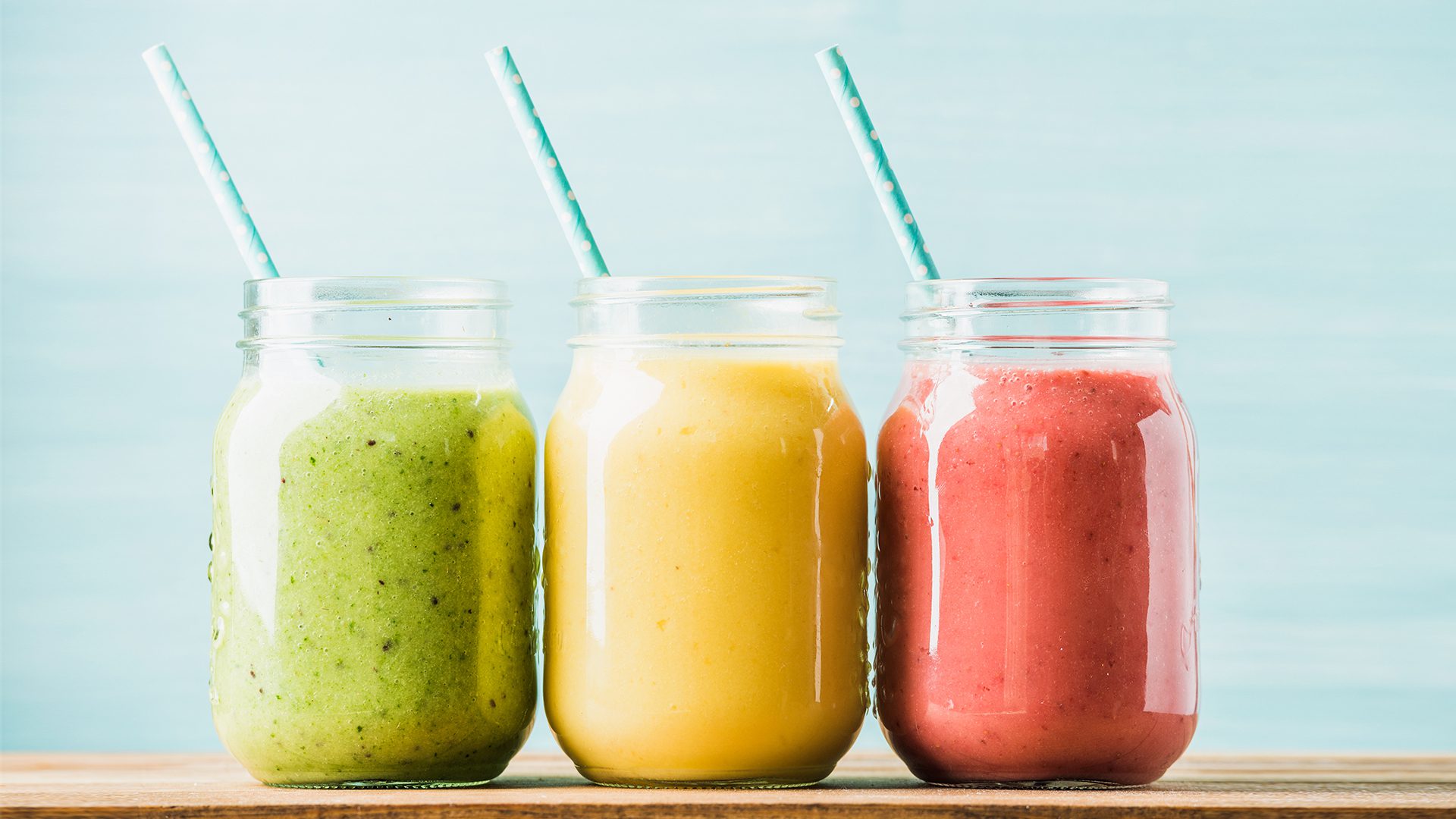- February 13, 2020
- By Dan Novak M.Jour. ’20
Each year, millions of tons of fresh produce never make it to stores because they’re bruised or blemished. But pretty or not, they all taste the same when tossed in a blender.
That’s the thinking behind Seconds Smoothies, a venture headed by Max Skoglund ’20 and Catherine Sorensen ’20 that takes rejected fruit from local farmers, saves it from a trip to the landfill and serves it as a tasty beverage.
“Smoothies are the perfect solution for that kind of food waste,” Skoglund said. “In a smoothie, people will never see the original appearance of the fruit, so there’s not a stigma in the way.”
Seconds Smoothies was one of the several student projects presented at Dining Services’ Sustainable Food Symposium in December, a showcase each semester of student research on topics like reducing food and plastic bag waste, and tweaking menus as a part of the university’s Cool Food Pledge, an initiative to bring more sustainable food to dining halls, campus cafes and event catering.
Dozens of campus stakeholders involved with food and sustainability, including faculty in food, animal and plant sciences, as well as staff from the Office of Sustainability and Dining Services, attended the symposium and provided feedback to students. The staff group convened again last month to discuss how the projects could be implemented to improve dining services on campus.
“The campus is a living laboratory,” said Assistant Director of Dining Services Allison Tjaden. “Some of that is feedback loops to improve what we do on the campus, but then other parts of that is other opportunities available to students, whether it’s starting a new business or a nonprofit. “
Seconds Smoothies is just the latest Maryland startup to target reducing food waste. The Food Recovery Network is a nonprofit founded by a group of Terps in 2011 to rescue unserved food from college campus dining halls and donate to the hungry. It has spread to 230 chapters nationwide, recovering nearly 4 million pounds of food. Two of its members, Evan Lutz ’14 and Ben Simon ’14, then launched Hungry Harvest and Imperfect Foods, respectively, businesses that rescue ugly produce and deliver it to customers’ homes as well as support nonprofits working to end hunger.
Samy Abisaleh ’20, along with Sorenson, formed what was called Feia Smoothies in 2017 as a part of a Design Cultures and Creativity course, selling their creations in the now-closed Maryland Food Collective, known as the Co-op. Skoglund, who worked part-time there, loved the idea and started getting more involved with the business.
Seconds Smoothies teamed up with Dining Services in October to showcase its products—like the Halloween-inspired pumpkin-pie smoothie—at the farmers market on campus. Skoglund’s goal is to sell them regularly at local farmers markets around College Park this spring.
Meanwhile, he and Sorenson have been seeking to reduce the company’s environmental footprint. At the farmers market in the fall, customers and passerby mixed up smoothies using a stationary bike attached an electricity-free, pedal-powered blender. Customers were encouraged to bring their own reusable containers.
“The smoothies are really, to me, a way to test out how to incorporate sustainability into a business,” Skoglund said. “Sustainability comes with a triple bottom line: It needs to be good for the environment, it needs to be good economically, and it needs to be good socially.”
Topics
Campus & CommunityTags
Food